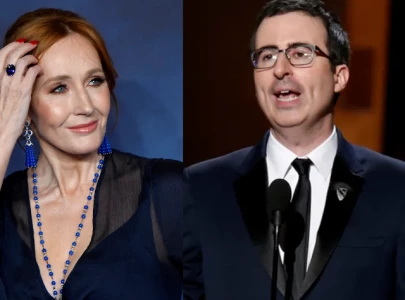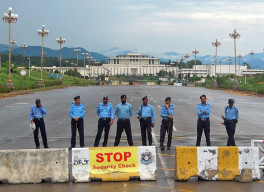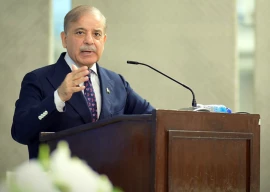
Relations between the security establishment and the PPP-led coalition government have been bedevilled by the infamous Memogate scandal which is yet to see its drop-scene.
With Inter-Services Intelligence chief Lt Gen Ahmad Shuja Pasha retiring this March, rumours have swirled about the government granting him a possible extension.
“It’s disinformation that meetings with the military brass prior to my departure for Davos were meant to ease the tensions with them,”
the prime minister told journalists upon returning from the Swiss city where he attended the World Economic Forum.
The premier refused to comment on his statement about the replies submitted by army chief Gen Ashfaq Parvez Kayani and Gen Pasha in the apex court in the Memogate case.
“Things are settling down. I’ve sacked the person who was responsible for the chaos and I don’t want to re-open the much-debated issue as I’ve already clarified the situation,” he said, referring to former defence secretary Lt Gen (retd) Khalid Naeem Lodhi.
Early elections
Opposition parties, especially the Pakistan Muslim League Nawaz and Jamiat Ulema-e-Islam (Fazlur Rehman Group) have been calling for snap elections.
To this demand, the prime minister said, “With the passage of the fifth budget, the election year starts and we are of the view that early elections are likely after the budget.”
Gilani said that his government would take all political parties into confidence and try and evolve a consensus on the 20th constitutional amendment bill.
“In politics, bridges are built, not walls,” he added. “We want free, fair and transparent elections and a smooth transition will set a tradition for future.”
He reminded the media that his government had said last year that the next federal budget would be unveiled in May to parliamentarians to give more time to debate issues of their constituencies.
Reign of democracy
The prime minister credited both his government and the opposition for the smooth-sailing that democracy had the country.
He appreciated the opposition for making it possible for the president to address parliament, according to the schedule. “He (Asif Ali Zardari) will become the first president to address a joint sitting of parliament for the fifth time,” Gilani said.
Contaminated medicines
The premier said that the rising death toll due to spurious medicines in Punjab was frightening and the nation was saddened by this tragedy. However, he noted with concern that officials in Punjab were blaming the federal government for “their own negligence”.
“The Punjab government is an obstacle in establishing a drug regulatory authority (DRA) … as the three provinces (Sindh, Balochistan and Khyber-Pakhtunkhwa) have agreed to the establishment of a DRA,” he claimed.
When asked about Punjab chief minister’s statement that he was ready to provide security to Mansoor Ijaz, the self-proclaimed whistleblower of the Memogate scandal, Gilani said: “Shahbaz Sharif’s statements cannot provoke me. I don’t want to criticise the provincial government as I’m the face of the Pakistan government abroad.”
Foreign policy
On Pakistan’s relations with the United States, the prime minister said that his government made history by adopting a “free and open foreign policy”.
“We protected national interests (both) in letter and spirit,” he added. “Other political parties want to stop Nato supply routes through musical concerts, but the PPP government took practical steps and stopped the Nato supplies (in protest against the Nov 26, 2011 Nato air raids on Pakistani border posts),” he said referring to Imran Khan’s Tehreek-e-Insaf, which has been a trenchant critic of US drone strikes and Pakistan’s cooperation in the war against terror.
(Read: A diet of eaten words)
Published in The Express Tribune, January 30th, 2012.
COMMENTS (12)
Comments are moderated and generally will be posted if they are on-topic and not abusive.
For more information, please see our Comments FAQ



1731975305-0/Untitled-design-(40)1731975305-0-165x106.webp)
1731975060-0/Untitled-design-(39)1731975060-0-165x106.webp)





1731929357-0/Express-Tribune-(6)1731929357-0-270x192.webp)






No army chief nor any other general should be given extensions at all.If Ayub khan had not been given extensions he would not have been able to carry out the coup and Pakistan would have been better off without these generals playing politics.Every time they had to leave power they left the country in more of a mess than before.
This culture of extensions is not good for the morale of the junior officers. No more extensions please.
I think ISI Chief and Chief of Army Staff, both seats have much involved in political Controversial, so didn’t give more extinction.
No More Extension
No more extensions to these generals. The poor Indian COAS is running pillar to post just to stay in the job for one more year and at least he has some justification if the supreme court believes his side of the story. Our good-for-nothing generals think they are indispensible. Yes, indispensible for the decay of Pakistan!
@Hafeez: they will be opened soon on order of mr president
why worry extention after extention to men in arms - we take lesson of indian, 3 years and thats all. whatabout state within state!
You should have fired him promptly when he ran to meet the foreign double agent all on his own desire and on public funds.
Great job Mr.PM. You are now really gaining respect of common Pakistanis who value democracy. I really like this statement “Other political parties want to stop Nato supply routes through musical concerts, but the PPP government took practical steps and stopped the Nato supplies".
Oh that's a joke! So, Gilani has the courage not to extend the General's term!
Even if he's shameless when it comes to taking back every respectable word he has ever spoken, I don't think even he'd let himself look so pathetic as to even remotely consider another extension.
wah,now you are talking like a prime minister and well done